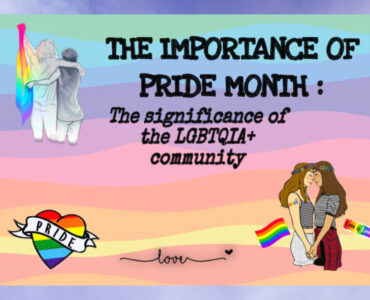What is a Situationship? When someone asks you if you are single or in a committed relationship and you answer with “it’s complicated”, well you might be in a Situationship. A Situationship is where two people are in an uncommitted relationship, where there are no labels or strings attached. A Situationship contains all the good parts of a relationship but without the tricky parts like accountability, having difficult conversations, sorting out conflicts.
Why do people choose Situationships?
With the fast-paced dating culture, having many people just at a swipe of the phone gives many options for a person to choose a partner from. In the initial stages, people might not be ready to be exclusive yet, want to meet other people and get to know them before fully committing to a person. This is understandable, because it takes time to understand compatibility, one cannot be compatible with everyone. So, taking time, talking to people, and then defining the relationship seems like a wise thing to do. But in many cases people opt for Situationships because they are not ready to commit, this might be due to commitment issues, but they want to experience intimacy, Situationship provides this to a person easily. In other cases, people do not want to take time to build a relationship with someone, in search of having some spark in a short duration, people end up in Situationships.
Signs you are in a Situationship:
• The relationship is undefined: You and your partner have not defined the relationship yet. You decide not to keep any labels upon it.
• There is no consistency: You might not know when you’ll run into them again, how long it will take them to reply to a text, or whether they’ll even try to get in touch.
• There is no mention of the future: It is cool to go with the flow. But at some point, it is natural to question ‘where is this going’. In a Situationship, there is often no discussion about the future. People who are dating may make some kind of future plans.
• The connection is superficial: Even though you both spend a lot of time together, the conversations might be superficial and lack any kind of emotional connection.
• The relationship is based on convenience: You might not prioritize each other. You talk to each other, or make plans when it is convenient to one of you or both of you.
• The relationship is not exclusive: One of you or both of you might be seeing other people.
• There isn’t much follow-up: There are no plans being made to decide when to meet next. There might be lack of taking initiatives. Even when plans are made, there might be no follow-up of such plans.
Impact of Situationships on Mental Health:
There is a chance that neither party will be open about what they seek from the Situationship. In most cases, one person is happy with the informal nature of the Situationship, while the other is expecting for more. The partner who wants more often does not know the other person well, which leads them to idealize their partner and thereby devalue themselves. Additionally, Situational relationships sometimes involve shallow communication. People who find themselves in these relationships time and time again typically struggle with their sense of self-worth and are drawn to partners who make them feel as though they have to work for their love.
What to do if you are in a Situationship?
Be honest about how you feel: Be open about your intentions for the relationship and be honest with yourself when it comes to your feelings.
Ask for what you want: If you’re interested in a more committed relationship, think about telling the individual how you feel and expressing your needs. You can move on and find someone who values you, shares your sentiments and wants to pursue a more committed relationship with you.
Avoid being passive: Your passive behaviour, like spending time while keeping your wants or ambitions hidden may be more destructive than you think if you actually want more from the other person than a casual connection.
Communicate your position: To avoid future resentment, it’s critical to let your partner know about your needs, limitations, and expectations from the start.
In a country like India, where we cannot openly talk to our families about our relationships, they can be confusing and complicated at times. Keeping them a secret from family only adds to the confusion. Not having healthy relationships around us while growing up and not having conversations about conflicts, how to deal with them, it gets difficult to sort everything on our own. We can depend on peers, but most often they are also figuring out relationships on their own. At times, one might need professional help, it is okay to ask for help. The PsyK-Life provides one on one counselling sessions. Feel free to reach out.
-Madaalasa Mannava





Hi, I do believe this is a great site. I stumbledupon it 😉 I may revisit once again since I saved as a favorite it. Money and freedom is the greatest way to change, may you be rich and continue to help other people.